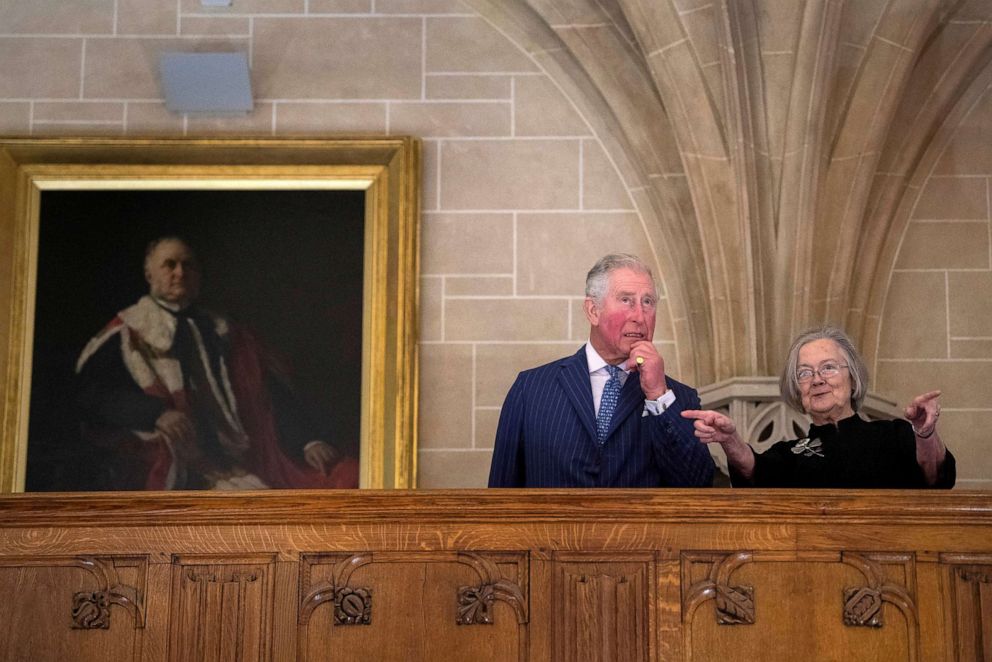
n London, Feb. 5, 2019.Charles, the Prince of Wales accompanied by Lady Hale, the President of the Supreme Court,
visits the Supreme Court of the United Kingdom in Parliament Square to commemorate its 10th anniversary, in London, F
eb. 5, 2019.Victoria Jones/Pool via Reuters
On 24 September 2019 the BBC reported:
Boris Johnson's decision to suspend Parliament for five weeks was unlawful, the Supreme Court has ruled.
Judges said it was wrong to stop MPs carrying out duties in the run-up to the Brexit deadline on 31 October.
The PM, who has faced calls to resign, said he "profoundly disagreed" with the ruling but would "respect" it.
A No 10 source said the Supreme Court had "made a serious mistake in extending its reach to these political matters", and had "made it clear that its reasons [were] connected to the Parliamentary disputes over, and timetable for" Brexit.
Yesterday, 13 December 2019 the BBC reported:
The PM, who has met the Queen to ask to form a new government, has a majority of 80 in the House of Commons - the party's largest since 1987.
Clearly, the majority of voters disregarded the Supreme Court's unanimous ruling. Can the Supreme Court as presently constituted continue to exist, given the loss of confidence in its rulings?
END




No comments:
Post a Comment